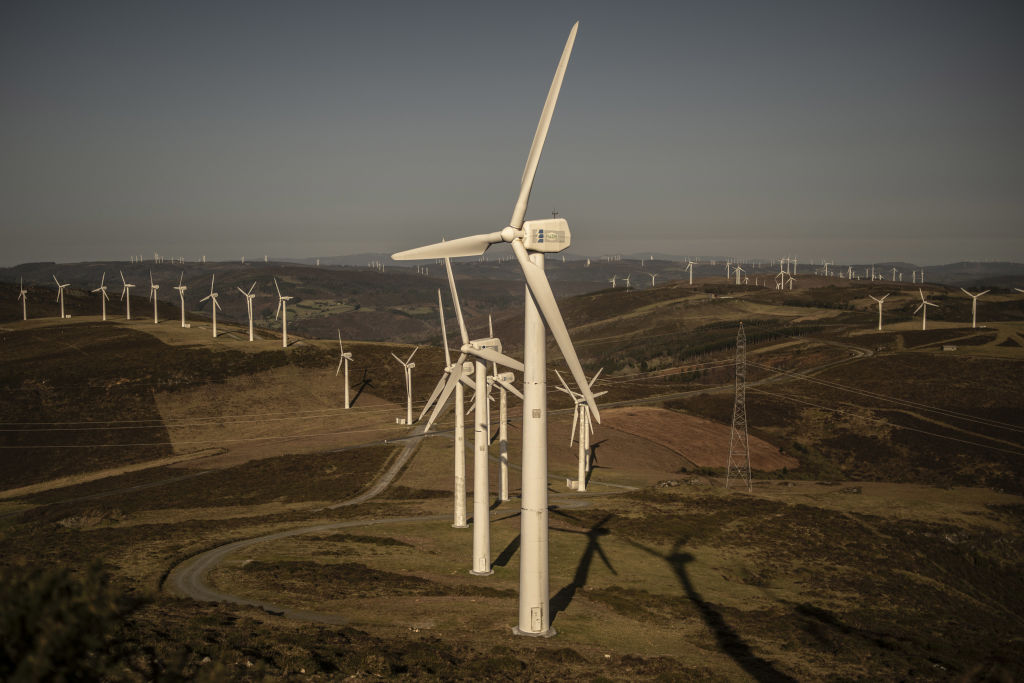
(To get this story in your inbox, subscribe to the TIME CO2 Leadership Report newsletter here.)
At a glance, it might seem that Steelcase has bigger things to worry about than its carbon footprint. As a maker of office furniture for big corporations across the globe, the company faces a challenging business environment as employees work remotely and offices remain unoccupied.
But CEO Sara Armbruster says the business environment has only strengthened the argument for the company’s sustainability efforts. Large corporate customers are routinely demanding information about the carbon footprint of Steelcase’s products, she says, and sustainability programs have become a factor in office furniture purchasing decisions. With that in mind, the company has doubled the percentage of recycled content in its packaging since 2020, installed solar panels at manufacturing plants, and launched a program to help its suppliers cut their own emissions.
“The essence is that there's a strong business case,” she told me in January. “At the end of the day, there's a deep customer desire and expectation.”
Read more: Why Companies Shouldn’t Ignore ESG Despite Investor Skepticism
Steelcase’s experience might not be what you’d expect, given that in recent months, corporate climate claims have come under scrutiny from all directions. Some conservative investors insist that companies should only focus on financial returns while some climate advocates decry business climate action as greenwashing. Many analysts point out the simple reality: most consumers aren’t willing to pay more for products to be green.
But all of those arguments ignore the fact that the market is shifting, and, no matter what retail consumers do, big companies increasingly want to buy green. Indeed, many of those big companies have grown more attuned to the details of their suppliers’ commitments. Armbruster says the climate-related questions Steelcase receives from its customers have become more sophisticated, and it often fields enquiries from corporate sustainability officers. “There is a significant and growing section of questions related to our commitment to the planet,” she says.
Steelcase isn’t alone. A third of companies surveyed between January and February by the Chief Executives for Corporate Purpose (CECP), a non-profit that helps businesses implement programs that have a positive impact on society, said that they receive sustainability questionnaires from their customers. And 21% of the 119 respondents to the survey, shared exclusively with TIME, said they send such questionnaires to their suppliers. The top three concerns of the companies that send questionnaires all tie back to climate change: carbon footprint, greenhouse gas emissions, and renewable energy.
Businesses should expect this trend to continue. Many major companies have set climate targets that ratchet up over time. Those goals will require them to develop a more in-depth relationship with their suppliers as they measure, and try to reduce, supply chain emissions. And a growing number of disclosure rules, too, will only increase the pressure on companies to start tackling this head on. The European Union’s climate disclosure rules, for example, will hit U.S. businesses with a significant presence on the continent in 2025. In Europe, and much like the rest of the world, early adopters will be rewarded.
More Must-Reads From TIME
- The 100 Most Influential People of 2024
- Coco Gauff Is Playing for Herself Now
- Scenes From Pro-Palestinian Encampments Across U.S. Universities
- 6 Compliments That Land Every Time
- If You're Dating Right Now , You're Brave: Column
- The AI That Could Heal a Divided Internet
- Fallout Is a Brilliant Model for the Future of Video Game Adaptations
- Want Weekly Recs on What to Watch, Read, and More? Sign Up for Worth Your Time
Write to Justin Worland at justin.worland@time.com